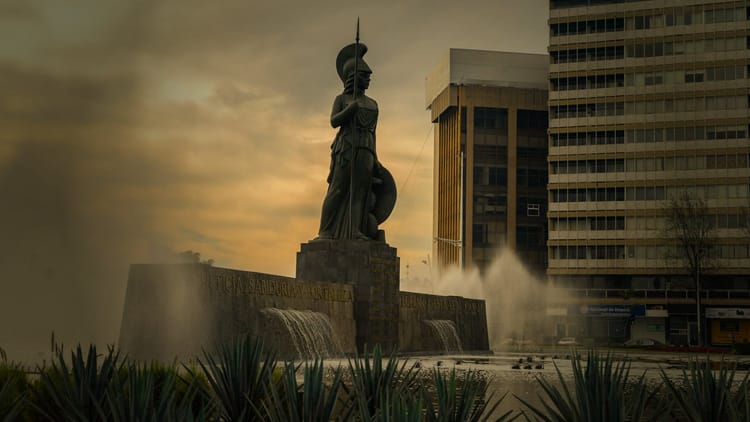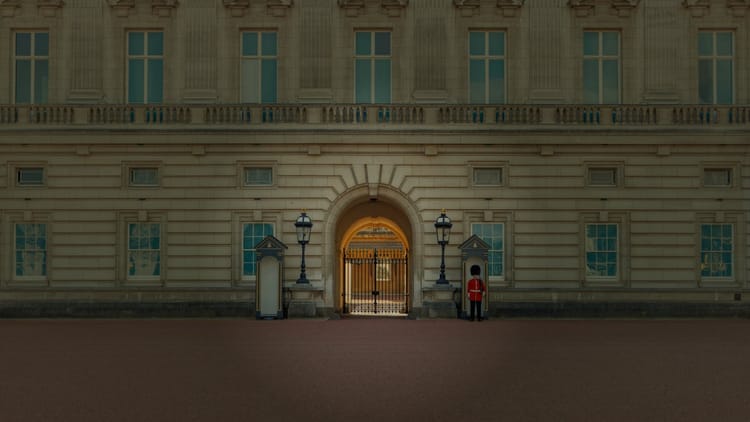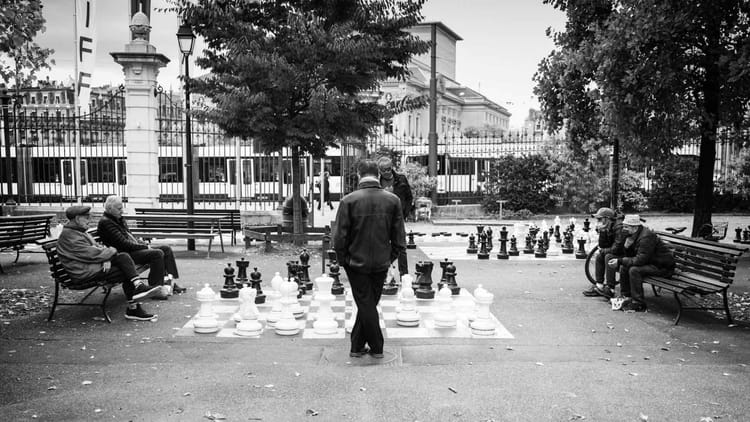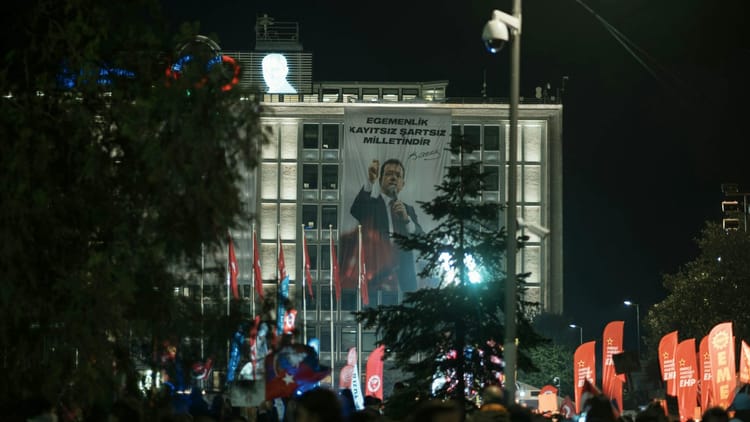The assignment in Cairo

Recently: Does Putin’s vision of Russia as a great power make a peace deal with Ukraine impossible? Anatol Lieven on nationalist ambitions, historical narratives, and Moscow’s fraught relationship with the West.
Today: Turkish, Qatari, and Egyptian officials are meeting in Cairo to negotiate phase two of the Gaza ceasefire. Phase one worked because it didn’t need Israel and Hamas to agree on what would amount to a violation. Phase two is much more specific. Now what?
+ For members: Why is it so tough to define what Israel will accept? Natan Sachs on resilience, doubt, and the challenge of preventing the next October 7.
& New music from Dan Snaith / Caribou / Daphni ...
Phase two
A Red Cross convoy crossed into Israel on Tuesday carrying the remains of Dror Or. Hamas killed Or during the attack on Kibbutz Be’eri in southern Israel on October 7, 2023. Israeli forensic teams identified his body on Wednesday. Two hostages’ remains are still somewhere in Gaza—one Israeli and one Thai national. But by the technical terms of the October ceasefire, phase one is wrapping up successfully. Hamas has returned nearly all the hostage remains it agreed to return. The framework has held.
Throughout phase one, Israeli strikes continued. Israel said it was responding to Hamas violations; Hamas said Israel was fabricating pretexts. Yet the exchanges have been happening on schedule. Why? The framework didn’t define violations. It didn’t specify what operations Israel could conduct. Both sides could disagree about everything except the schedule. As long as Hamas returned hostages on time, phase one worked.
Phase two will be something different—requiring the deployment of an international force, the disarmament of Hamas, and the establishment of governance in Gaza. Turkish, Qatari, and Egyptian officials met in Cairo on Tuesday to negotiate terms. And those terms will need definitions. What kind of international force? Verified disarmament, how? Governance by whom? Israel hasn’t specified. Hamas hasn’t either.

Meanwhile
- A shooting near the White House. Two West Virginia National Guard members are in critical condition after an attack on Wednesday afternoon at 17th and I Streets in Washington, D.C.—two blocks from the White House. Someone also shot the suspect, Rahmanullah Lakanwal, an Afghan national now in custody. President Donald Trump deployed the guardsmen in August as part of more than 2,000 troops he sent to patrol Washington streets and metro stations. Last week, a federal judge ruled the deployment “likely illegal.”
- Hat Yai underwater. Thailand has declared Songkhla province a disaster zone after flooding killed 33 people. More than 2 million people across ten provinces have been affected. Hat Yai district recorded 335 millimeters of rain on Friday—the heaviest single-day rainfall in three centuries. Floodwaters reached 2.5 meters and cut off a maternity ward with 30 newborns inside. Thailand’s military deployed the aircraft carrier Chakri Naruebet as a floating hospital. In Malaysia, authorities evacuated 27,000 people from northern states.
- The Tai Po fire. A fire burned through apartment towers in Hong Kong’s Tai Po district on Wednesday. At least 36 people have died, another 279 remain missing. The 32-story buildings hold about 2,000 apartments, which workers had wrapped in bamboo scaffolding. The fire started around 2:50 p.m. Falling debris and extreme heat kept firefighters from reaching trapped residents. The fire started around 2:50 p.m. Falling debris and extreme heat kept firefighters from reaching trapped residents. President Xi Jinping has urged “all-out rescue efforts.”
- With flyovers from Beijing. On Wednesday, Taiwan President Lai Ching-te announced a US$40 billion defense budget spanning eight years. The budget funds U.S. arms purchases and asymmetric warfare capabilities. China warned it would “crush all foreign interference” in Taiwan. Taiwan detected 20 Chinese military aircraft on Wednesday. Fourteen flew across the strait’s center line toward Taiwan. Japan has deployed missiles 110 kilometers from Taiwan. Trump called both Xi and Japanese Prime Minister Sanae Takaichi on Wednesday about the tensions.
- As Moscow advances. Russian forces captured 128 square miles of Ukrainian territory last week—the largest weekly gain since July, according to the Institute for the Study of War. Troops seized the villages of Promin and Vysoke and are advancing on Pokrovsk, a transportation hub. The gains came as U.S. officials met separately with Ukrainian and Russian delegations in Abu Dhabi to discuss a revised peace framework. On Monday, Russia launched 22 missiles and 460 drones on Kyiv. … See “Four days in Geneva.”

Wary of fast fashion?
Shop Congo Clothing Company and
make a difference—in style.
From the files
Aftershocks
Why is it so tough to define what Israel will accept? Natan Sachs on resilience, doubt, and the challenge of preventing the next October 7.

Phase two of the Gaza ceasefire requires Israel to commit to security arrangements it hasn’t defined—international forces, disarmament verification, governance structures. Understanding resistance to those commitments in Israel requires understanding how October 7 shaped Israeli thinking about security and control. In February, Natan Sachs explored how the attack transformed Israeli receptivity to outside pressure: “Most Israelis not only believe justice is on their side; they also fear the lives of their mothers and children are at stake. So their receptivity to international pressure is limited.” …
Your loyal guide to a changing world.
Membership with The Signal means exclusive access to premium benefits:
- Regular profiles on the questions behind the headlines
- In-depth feature interviews with our network of specialist contributors from across America and around the world
- The despatch, our weekly current-affairs and cultural-intelligence briefing
- Early access to new products, including print extras
It also means vital support for an independent new enterprise in current-affairs journalism.
New music
‘Waiting So Long’
The Canadian artist Dan Snaith has two musical identities: Caribou for pop vocals, Daphni for dance music. This new track merges them—Caribou’s voice over Daphni’s uptempo production. The distinction between the two projects was always fluid. Now it’s dissolved entirely.
The Signal will return Monday …





